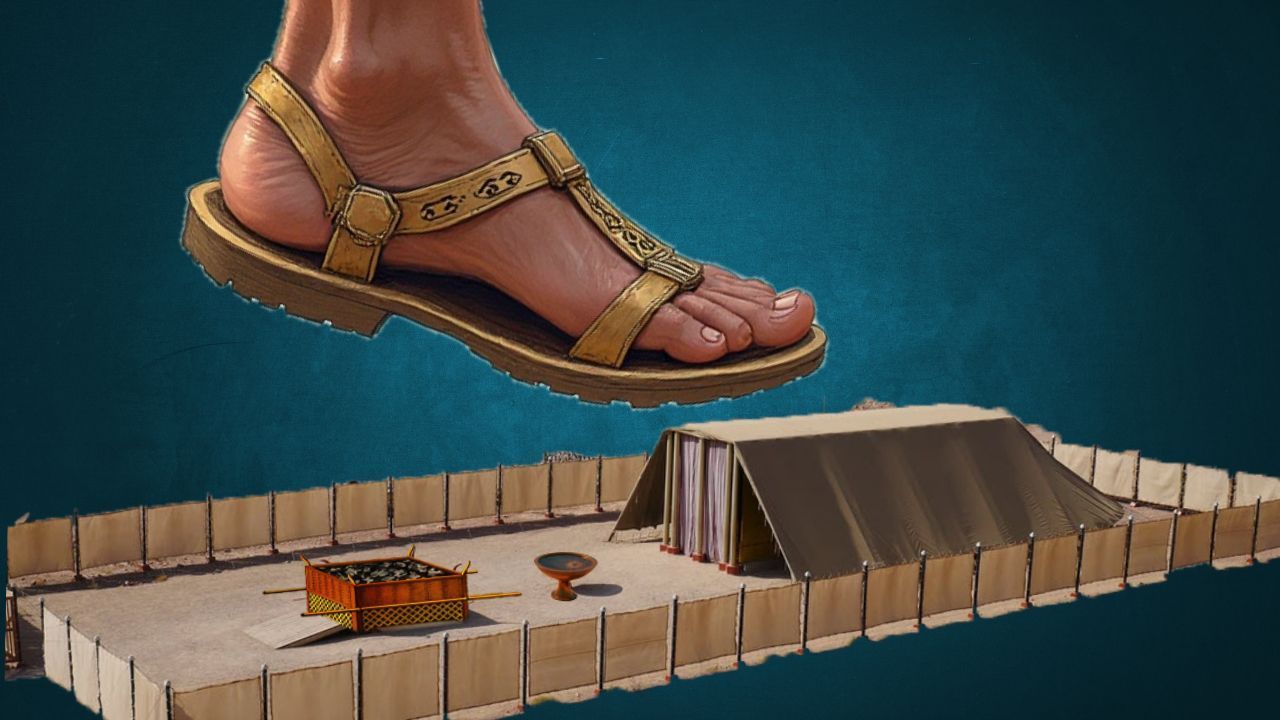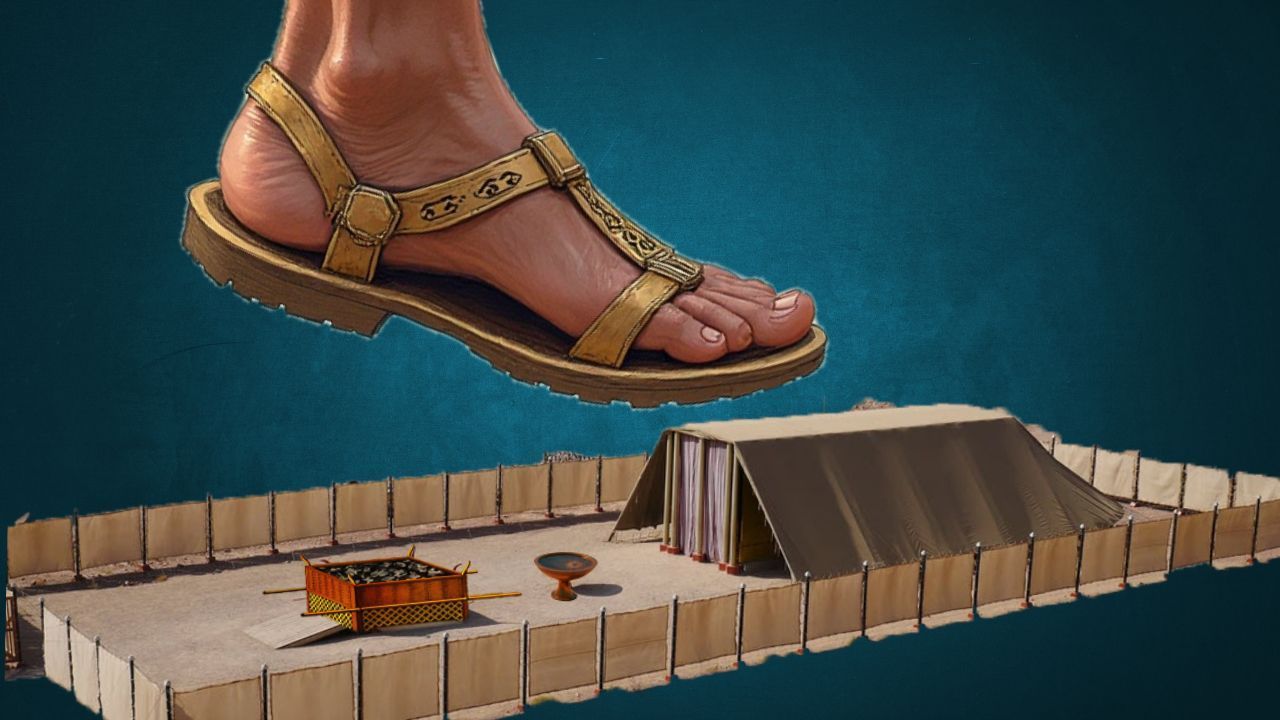
In the latter half of the chapter, the angel explains the vision that Daniel saw in the first half of the chapter. As the angel interprets the vision for Daniel, he calls the Little Horn "a king of fierce countenance." In this article, we will examine the angel's explanation to see if the timeframe matches Antiochus Epiphanes.
problems with the Antiochus Epiphanes Interpretation
What many well-intentioned Evangelical and Catholic believers don't realize is that Daniel 8:22 produces a logistical problem for them. They largely believe that Antiochus Epiphanes was the king of fierce countenance mentioned in this verse; however, several textual arguments make it difficult to identify him as the "king of fierce countenance." Let's examine these arguments:
1. Antiochus didn't arise in the latter time of their kingdom
Daniel 8:23 states that this king (Little Horn) would arise "in the latter time of their kingdom." It's obvious that "their kingdom" represents the four kingdoms of the divided Greek Empire. In essence, towards the fall of the Greek Empire is when the Little Horn would be expected to stand up.
Now, in order to determine the "latter time," we must determine when the divided Greek Empire was established. Although the final kingdom to be established was the Seleucid Empire in 312 BC, the historical record also reveals that the four kingdoms weren't solidified until the Battle of Ipsus was decided. In this battle, Cassander, Ptolemy, Lysimachus, and Seleucus teamed up against Antigonus, who was defeated in 301 BC. In this manner, we should see that the four horns were established sometime between the rise of the Seleucid nation in 312 BC and the defeat of Antigonus in 301 BC, which left the four kings ruling the empire.
The Greek territories began to fall to the rising Roman armies as they took Macedonia in 164 BC, Egypt in 80 BC, and the Seleucid Empire in 64 BC. Therefore, we should see that the latter end of "their kingdom" was in 64 BC. Thus, we should see the rise of the Little Horn around this time.
The problem that proponents of the Antiochus view face is that the Syrian king ruled approximately from 175-164 BC, placing him in the middle of the divided Greek period rather than its "latter time."
2. antiochus' kingdom wasn't as powerful as alexander's kingdom
The "little horn" in the vision is described as becoming "exceeding great," surpassing even Alexander the Great, who was only "very great." However, we remember that the prophecy also said that four kingdoms would stand, "but not in his power." Hopefully, you can see the contradiction. If the Little Horn is said to wax exceeding great over Alexander, then how can the kingdom that the Little Horn ruled not be as powerful as Alexander's? The mere fact that the Little Horn waxed exceeding great forces us to conclude that the Little Horn could not have been part of the lesser divided Greek Empire; he had to be a power that rivaled and even surpassed Alexander the Great. This disqualifies Antiochus Epiphanes.
3. Transgressors did not come to the full
Daniel 8:23 connects the rise of this king with a time "when the transgressors have come to the full" or "reached their limit." This phrasing suggests that there came a time when Israel's transgression came to a boiling point. In essence, a time when Israel's apostasy became so prevalent that God's judgments ensued. Now, we must determine if this "boiling point" occurred during the time of Antiochus Epiphanes.
In looking at the landscape of Israel's existence, we understand that when they found themselves in apostasy, God would often discipline them by allowing the Heathen nations to enslave them. According to Daniel 8, this apostasy is why God labeled them as "the transgressors," and we should see that these transgressions are why God allowed the Little Horn to come against His Chosen people.
Although Israel was punished through persecution on various occasions, we should also see that there were only a few occasions when they saw a notable persecution:
- The enslavement of the Jews, along with the destruction of the city and the sanctuary by King Nebuchadnezzar (586 BC)
- The persecution of the Jews and the desecration of the sanctuary by Antiochus Epiphanes (167 BC)
- The destruction and scattering of the Jews and the destruction of the city and the sanctuary by Titus (70 AD)
The above list should prompt us to ask the following question: If the transgressors had come to the full in 167 BC, then why was their punishment worse in 70 AD? Looking at this simply from a logical perspective, it would seem that the more extreme punishment would be the telltale sign of when the transgressors had come to the full. As a matter of fact, Evangelicals and Catholics have chosen the least extreme punishment (relatively speaking) to make that the time when the transgressors are come to the full.
What most honest Evangelicals and Catholics have yet to realize is the relation that this prophecy has with the 70-week prophecy. Notice what the prophecy states:
Seventy weeks are determined upon thy people and upon thy holy city, to finish the transgression, and to make an end of sins, and to make reconciliation for iniquity, and to bring in everlasting righteousness, and to seal up the vision and prophecy, and to anoint the most Holy. Daniel 9:24
The 70-week prophecy was fulfilled long after the persecution of the Jews by Antiochus Epiphanes. However, what you should notice is that the prophecy reveals that the transgression was still occurring. As a result of this continuous transgression, God put a time limit on the Jewish apostasy. Thus, God gave the transgressors 70 weeks to finish their transgression. It should be clear to you that as a result of this transgression, the Roman Empire was raised to fulfill the judgments of God.
Conclusion
It should be obvious that toward the latter end of the divided Greek Empire in 64 BC is when Israel's transgressions had come to the full. As a result, God raised up the Roman Empire as the Little Horn, who, after conquering Syria, stood up as the undisputed ruler of the known world and executor of God's judgments upon Israel.




